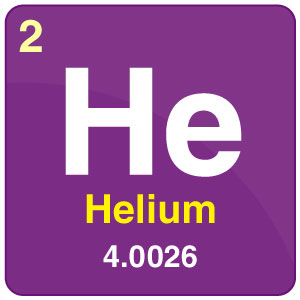Chemistry
Vocabulary [AtoZ]
Part -1 (01 to 50)
1. Absolute Temperature
temperature measured on the absolute scale
2. Absolute Zero
the lowest temperature theoretically attainable
3. Absorption
a process in which one substance permeates another
4. Accuracy
the quality of being near to the true value
5. Acid
any of various water-soluble compounds having a sour taste
6. Activation Energy
the energy that an atomic system must acquire before a process (such as an emission or reaction) can occur
7. Addition Reaction
a chemical reaction in which one molecule is added to another
8. Alcohol
a volatile compound made by distillation
9. Alkali Metal
any of the monovalent metals of group I of the periodic table (lithium or sodium or potassium or rubidium or cesium or francium)
10. Alkaline
relating to or containing an alkali
11. Alkaline-Earth Metal
any of the bivalent metals of group II of the periodic table
12. Allotrope
a structurally different form of an element
13. Alloy
a mixture containing two or more metallic elements
14. Amorphous
without real or apparent crystalline form
15. Anhydrous
without water; especially without water of crystallization
16. Anion
a particle with a negative electric charge
17. Aqueous Solution
a solution in water
18. Atom
the smallest component of an element
19. Atomic Mass
the property of an atom that causes it to have weight
20. Atomic Number
quantity of protons in the nucleus of an atom of an element
21. Atomic Theory
a theory of the structure of the atom
22. Atomic Weight
(chemistry) the mass of an atom of a chemical element expressed in atomic mass units
23. Avogadro'S Law
the principle that equal volumes of all gases (given the same temperature and pressure) contain equal numbers of molecules
24. Avogadro'S Number
the number of molecules in a mole of a substance
25. Balance
bring into equilibrium
26. Base
a compound reacting with an acid to form a salt and water
27. Beaker
a flatbottomed jar made of glass or plastic
28. Binary Compound
chemical compound composed of only two elements
29. Boil
bring to the temperature at which a liquid changes to vapor
30. Boiling Point
the temperature at which a liquid boils at sea level
31. Boyle'S Law
the pressure of an ideal gas at constant temperature varies inversely with the volume
32. Brittle
having little elasticity
33. Buffer
(chemistry) an ionic compound that resists changes in its pH
34. Bunsen Burner
a gas burner used in laboratories
35. Buoyancy
the tendency to float in water or other liquid
36. Calorimetry
measurement of quantities of heat
37. Catalyst
substance that initiates or accelerates a chemical reaction
38. Cation
a particle with a positive electric charge
39. Chain Reaction
a series of chemical reactions in which the product of one is a reactant in the next
40. Charge
the quantity of unbalanced electricity in a body
41. Charles'S Law
(physics) the density of an ideal gas at constant pressure varies inversely with the temperature
42. Chemical Bond
an electrical force linking atoms
43. Chemical Change
process determined by substances' composition and structure
44. Chemical Energy
that part of the energy in a substance that can be released by a chemical reaction
45. Chemical Formula
a representation of a substance using symbols for its constituent elements
46. Chemical Property
a property used to characterize materials in reactions that change their identity
47. Chemical Reaction
a process in which substances are changed into others
48. Chemistry
the science of matter
49. Chromatography
a process used for separating mixtures by virtue of differences in absorbency
50. Coefficient
a constant number that serves as a measure of some property

No comments:
Post a Comment